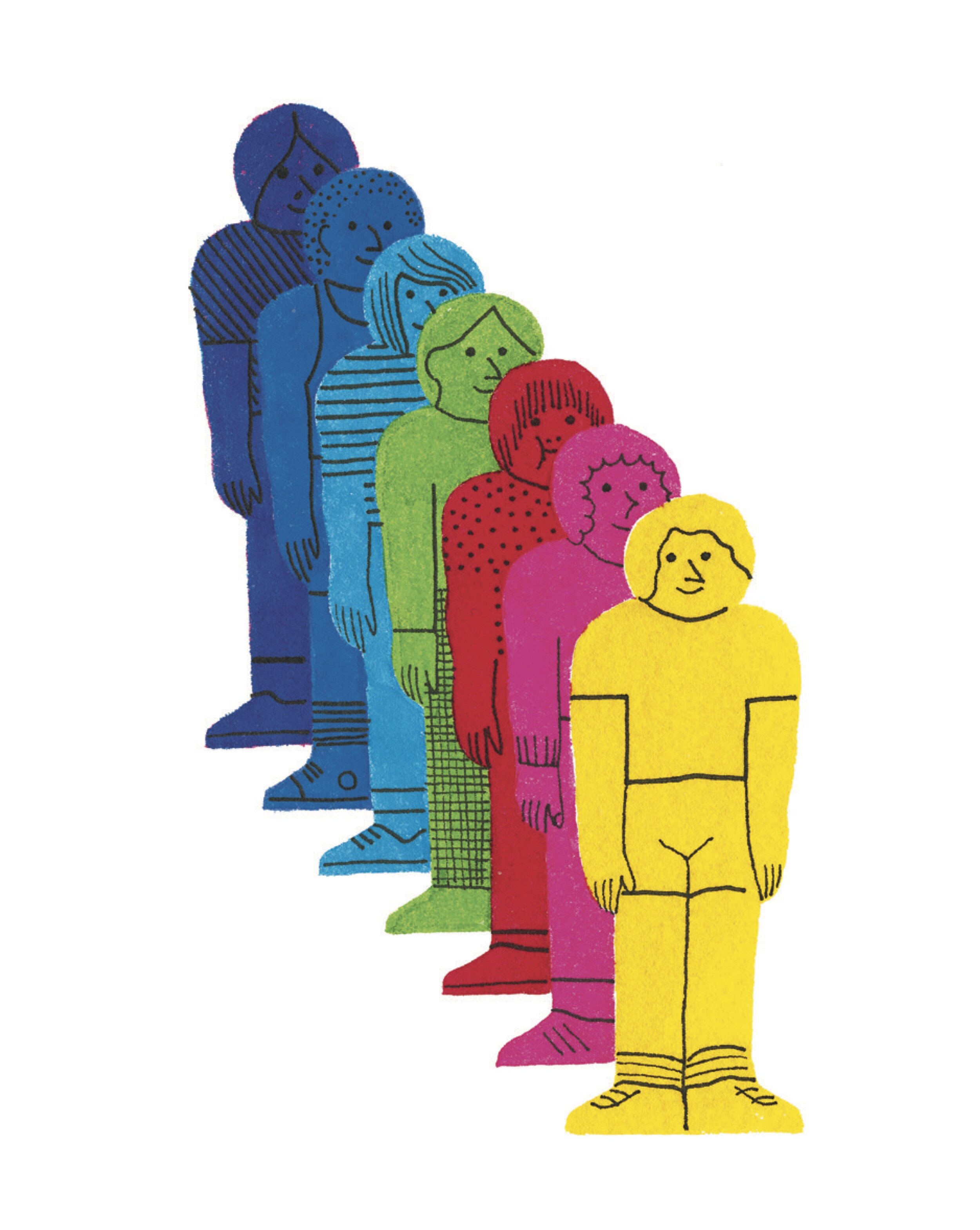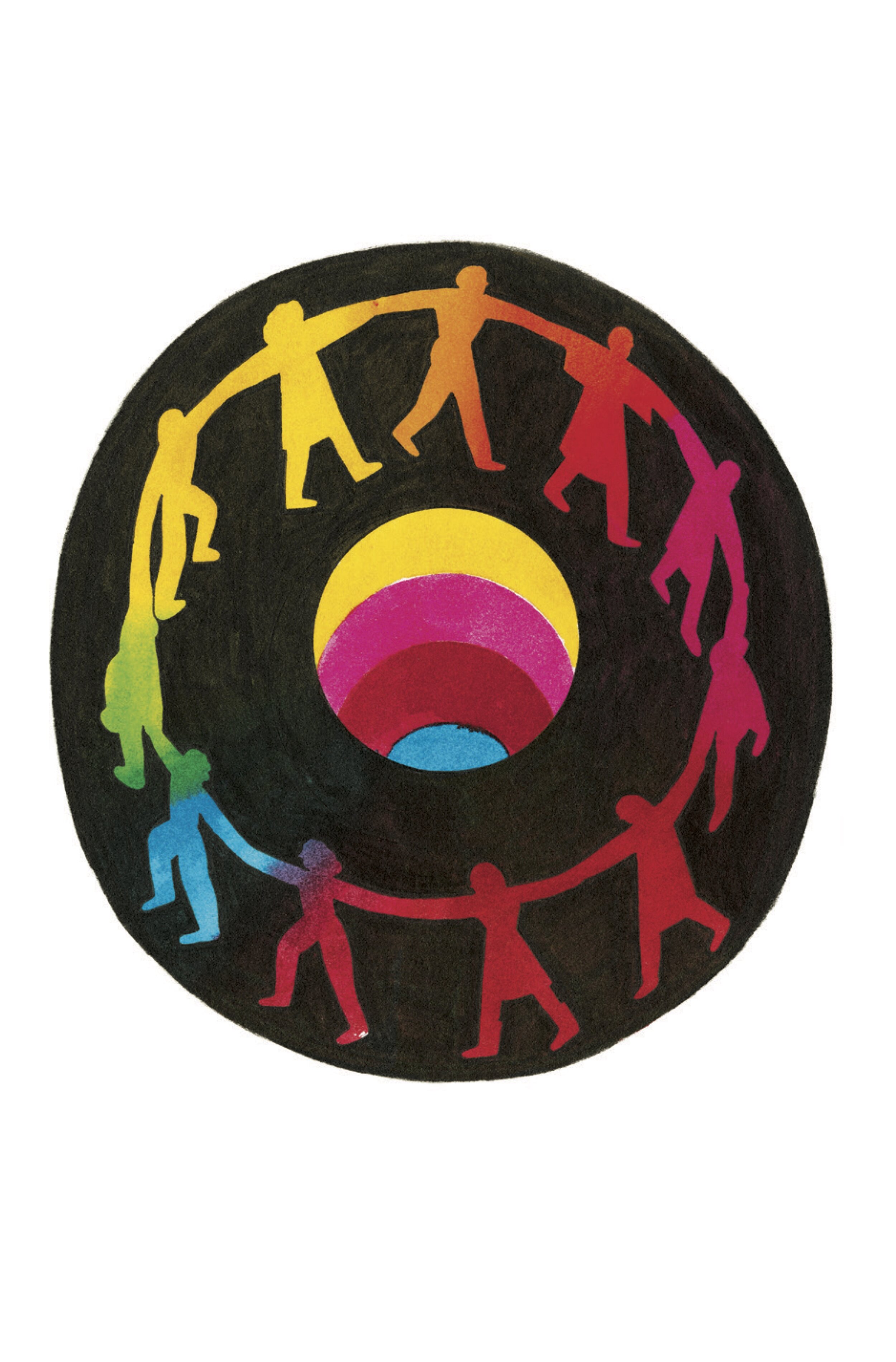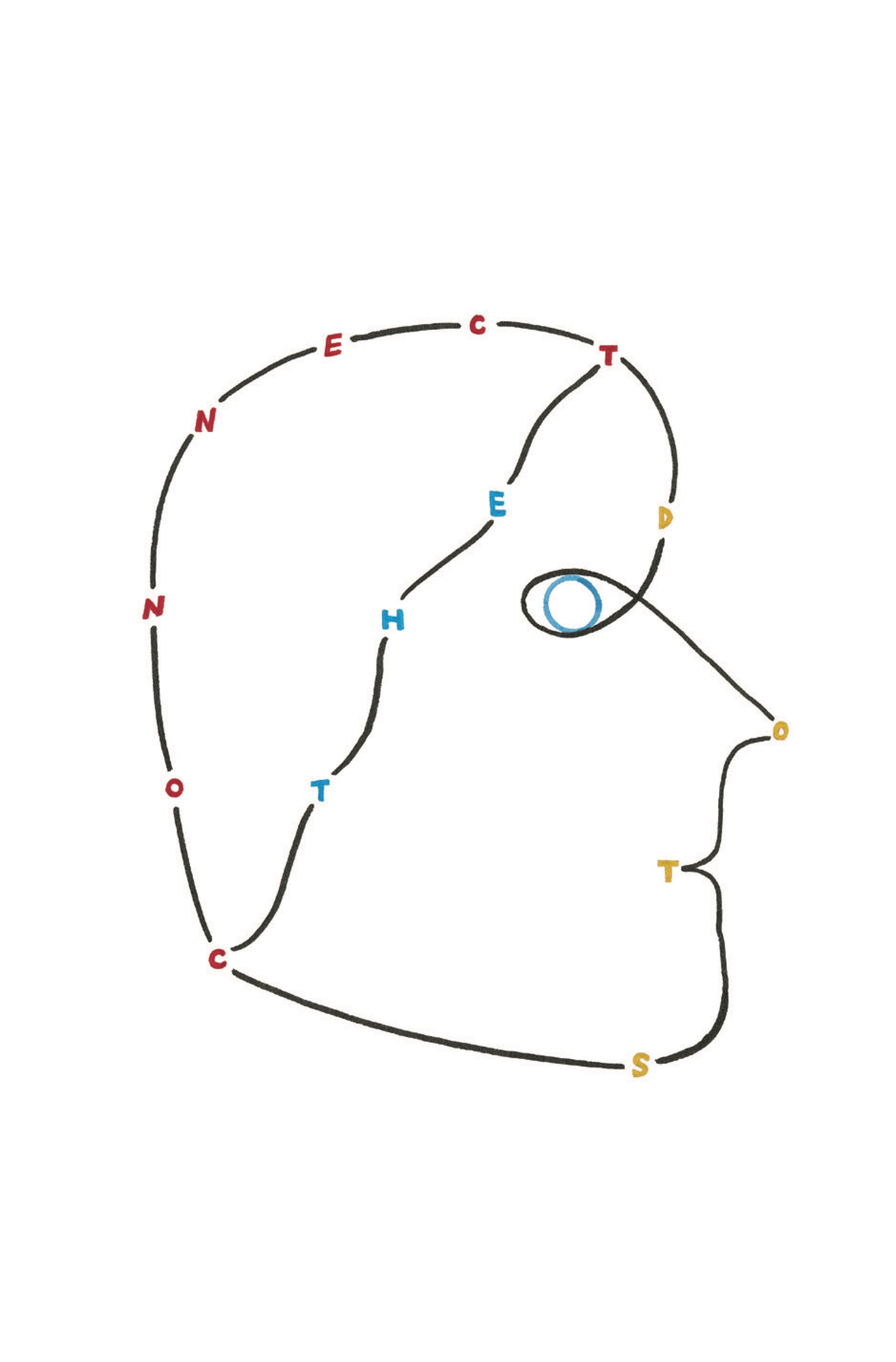Part 2: A Conversation around Language, Hijacking Reality, and Italy with Translator Antony Shugaar
In an interview touching on translation, Rodari, and children’s literature, Enchanted Lion’s Emilie Robert Wong and translator Antony Shugaar discuss his work on Gianni Rodari’s Telephone Tales. This second installment explores translation, metaphor, and moving vans, while taking a deep dive into Rodari’s underground river of decency and finding the light that Telephone Tales can offer in troubling times.
October 23, 2020 marks Gianni Rodari’s 100th birthday. To celebrate this occasion, we’re releasing the interview with Antony Shugaar in three installments throughout the week. This is part two of the conversation. We’ve posted part one here, and the final installment will be shared on the blog soon!
ERW: You’ve just described translation as a kind of reporting. I think it was in a New York Times article, you described translation as a performing art. Can you tell us a little bit more about that idea, and maybe also how you see either reporting and performing art as intersecting, or if they’re just two different aspects of translation?
AS: Well, it’s very funny. First off, I read a study which was actually a meta-study, which in academics is a compilation of many studies, and in this meta-study, they said that when people talk about translation, which is sort of a metaphysical thing, they tend to use a number of different metaphors. One of my favorites is the idea of taking a play or a musical that is put on in a theater in New York, and it’s very successful, so they’re going to take it to a theater in Cleveland. But that theater is different from the theater in New York, so you have to change the play so that it’ll work in the Cleveland theater. Well, it’s very much like doing a translation: you’re moving—it’s so theatrical. What this study said was: “There are many, many different metaphors for translation, and we studied all of the different metaphors which were positive in all the different studies, and our conclusion in this meta-study of all the studies of metaphors for translation is that the best metaphor for translation is the metaphor.”
I love that so much. I was a classicist, so (and here we’re going to go right out the window) I said to myself, “Of course, the metaphor is the best metaphor for translation!” As a matter of fact, since I’m so interested in etymology—and it’s very useful to know etymologies when you’re translating, in Latin, translate is: “trans,” meaning “across,” and “late,” which is “to carry.” It comes from “fero, ferre, tuli, latum” (so “difference” and “dilation” are related), so “translate” means “to carry across.” In Ancient Greek, the equivalent of “trans” is “meta,” and the equivalent of “late” is “phor.” So, “metaphor” means “to carry across!” I was reading a book about language, and there was a picture of a Greek moving truck in Athens, and on the side of it, it said “metaphor”—a moving truck is a metaphor! It means literally to carry things from one place to another, so I realized, “Okay, so really, the job as a translator is to pack everything up in boxes so it won't be broken, put it in a truck, and then move it to another language.” And that is the kind of silly riff that I find fascinating, and that maybe explains why translating is fun for me.
ERW: Right, because it’s all about words and different ways to convey meaning. I think what you’re saying about etymology is so true. When I was in school, we were always taught the roots when we were learning definitions. And I feel like it really helped me put together concepts that I wouldn’t normally have put together, and also remember the definition of the word and the meaning that it carries, because it became more personal with that history and lineage.
AS: Very much so. And I think that when you have only one language, you think that all the words for the things are the things themselves. But when you learn more than one language, when you have multiple languages, you say, “That is one of the words that I know that describes that.” With different languages, it’s not like they construct reality differently; it’s just that you understand that language is a system for conveying meaning. And if you only have one language, that doesn’t seem as clear to you.
Italian was the first language that I really, really learned, and I remember being a year into it, and suddenly saying to myself, “You know what, a year ago, I wouldn’t have understood a thing I’m thinking. I would have been very confused inside my head. I would have really been lost.” Luckily, I still knew English, so I would have been able to ask myself for help, but the thing about etymology and the beauty of it is that they're saying, “This word wasn’t always there. Someone had to come up with it at some point.”
ERW: Thinking of language as something that is evolving over time and all of the new words, that too is related to a certain freedom and playfulness in children’s literature, and also in Rodari’s literature in particular, where he enjoyed making puns and combining different words. How do you translate things like that when you’re essentially making something new out of existing Italian words that don’t exist in English?
AS: The further away you go with languages, the harder that is. But a big part of English is French, and [French and Italian are quite close.] When you’re translating, you hope that the pun works. There were a couple of cases, I think there were two stories, that we just could not make work. In translation, sometimes I say, especially with novels (this doesn’t work as well with someone like Gianni Rodari, with small creations that are very tightly structured): if a joke doesn’t work, I’ll try to make another joke somewhere nearby. Then I feel like I’ve kept the ballast, the balance. Like a ship, you don’t want it tipping over in a high wind, so you want to keep it weighted properly, and I figure with a novel, I can do that. With Gianni Rodari, it’s almost always possible to do, but there’s also another process aside from the playfulness of the language…
There’s another underground river in Gianni Rodari that’s not just words, and it is a sense of decency and equality. It certainly must have come out of his years of education and also the battle that he fought with the rest of his country in the war. Gianni Rodari was born in 1920, a hundred years ago, and Italy became a fascist country in 1922. People forget that when Hitler rose to power, Italy already had had a fascist dictator for eleven years. So it was very deep and very dark, and some of the writers I’ve read from this period talk about fascism not even as the fear that you’re going to be caught in the middle of the night and dragged off and tortured, as much as there’s a dullness to existence because there are things you can’t say, and in order to keep from saying certain things, there are things you can’t think. And so, this repression permeates your body, at a certain point, and permeates your mind.
Gianni Rodari came from a part of Italy where, among other people, a great figure was Camillo Olivetti. He was an industrialist, and he made typewriters, and in fact, one of the most beautiful typewriters ever built was the Lettera 22, which is in the Museum of Modern Art. Olivetti was a great utopian capitalist. He provided all his workers with housing, vacations, recreation, restaurants, and cultural activities. And Gianni Rodari came out of this place where he understood that a very successful industrialist could become very successful and very happy by treating his workers incredibly well, by being very generous to them, and getting the response of an extremely motivated workforce. It’s a lesson that every fifty years, some major industrialist seems to learn; otherwise, it’s all just a war between employer and employees. So, Gianni Rodari came out of this nonlinear concept known as “win-win,” where both sides benefit from a change. And I feel like in many of the stories throughout, Gianni Rodari is talking about situations that wouldn’t follow the usual rules, where it might be surprising how well people can do by simply doing something different.
I feel like that idea, as much as the humor with the puns and the use of the words, is the underlying concept that’s at play in Gianni Rodari, and that produces all these wonderful things. Like the town where they had a building to break, and all the kids were invited to go in there with hammers, and just break everything they could see, and splash paint on the walls, and just be as destructive as they wanted. And so, the town would set one building aside for that, and the kids would understand not to do that in other buildings, but in this one, they'd just go crazy. It was a win-win. It was a great Rodarian idea.
As for the words, there’s one other wonderful thing that happened. My nephew has lived in Japan for much of his adult life, and he speaks perfect Japanese. When we went to visit him, I had sent this book to him, and he said, “Telephone Tales… Rodari… To my ear, Rodari sounds much like a rotary dial.” I said, “Gianni Rodari would have loved that particular coincidence because that's exactly what Japanese would do with ‘rotary dial.’” I thought that was hilarious: Gianni Rotary!
ERW: You were talking earlier about the darker context that gave rise to this inventiveness. In today’s world, with the pandemic, with the different political struggles happening, do you think that that will help readers connect better with Telephone Tales? Or another way of looking at it is, what do you think Telephone Tales can offer readers in this particular time, in this particular context?
AS: You know, that’s a very tough one. I don’t know. I don’t know what to think about what the future is going to bring, or even what the very near future is going to bring. But I do think that in this world, as it’s playing out, it’s a much better thing that we have Telephone Tales in a new edition in English than not. I feel that its presence is a good thing in a very troubling time. I don’t know whether it will be successful or not in changing the discourse, but I definitely think that people reading stories by Gianni Rodari in the middle of a time like this is like that line, “Better to light one candle than curse the darkness.”
One of the stories that I really loved, and which has a very, very dark tone to it, is the one about the construction worker who fell into the cement, and was buried inside the building, and became a part of the building. Because then, though dead, he lives in that building and loves everyone who comes through it. He knows all the different families, and he sort of becomes the spirit of that building. If there's one thing Italians know, it’s Classics and philosophy. That does seem to be a part of their culture that maybe we don’t have to the same extent. In any Ancient Roman house, they had the lares and the penates, who were the household gods who watched over the house and who had to be respected. The idea that a house has that is just part of the general sense of decency in Gianni Rodari: if you do something bad, you’re probably not going to sleep well at night because the house will know. I like that aspect of it.
ERW: I was thinking also of “Giacomo of Crystal” and the idea of telling the truth simply because that’s the truth. The way he was born was to be open and to be honest and to tell the truth, and it’s uncomfortable but also very necessary, to the extent that it transforms the prison that he’s in and the town that he’s in. What a fantastic idea!
AS: Right, fantastic. And today, you know, children might say, “But telling the truth isn’t how you get to be president…” I love that story. It’s a beautiful story, and it’s all about doing the right thing. Do the right thing, be decent even if it’s tremendously inconvenient and tremendously unsuccessful. It’s a very hard time for a book like this. Plato at a certain point said that it does not seem responsible for writers to bring books into the world. Really, Plato? Of course you want to bring books into the world in a world like this, which may be a little hard on the books, but better for the world. I strongly believe that. I feel almost shy towards Gianni Rodari. As if I’m asking him, “You’re going to have to go take a look at what’s happening, and it’s not great, but we need your help right now.”
ERW: When it comes to the darker or more complicated aspects of life, there’s often a debate around what adults deem acceptable or appropriate for children. You’ve translated so many different things, from Italian thrillers to nonfiction to literary fiction to even HBO episodes. Do you feel like your approach to translating for children is different in any way compared to translating for adults? Do you even think about the child as the target audience for this book, or is it more universal?
AS: It’s interesting. I am a Lewis Carroll fan from way back, and Lewis Caroll loved logic but also languages. And of course, his name was Charles Lutwidge Dodgson, and in Latin, “Charles is “Carolus,” and “Lutwidge” in German is “Ludwig” which is “Lewis,” so he used etymology to construct his name. One famous quote that he said, and I’m with him all the way in this, is that while his books were perfectly safe for children, they might be advisable to keep out of the hands of adults. Because it’s just such renegade logic and illogic that the adult mind may be actually damaged by it, whereas children can play in it perfectly. I do not think for one moment that Lewis Carroll would have changed the language that he used because he was talking to children. He spoke and wrote in a very elevated and complete language.
So, I don’t know. Again, as a translator, I really don’t have much technique other than to surrender to the style and just kind of say, “Okay.” People always say, “Oh, was that hard to translate? Was this hard to translate as it's very complicated?” And I think, “No, the more complicated and ingenious and full of ideas the text is, the better!” The only book that is really, really hard to translate is a book by a stupid author about an uninteresting subject. That’s hard.
I like to say that translating a book is like going on a very long train ride in a compartment in which the only people are you and the author. And you’re there together for twenty-seven hours, or twenty-seven days, or however long it takes to finish. So you hope that the writer is congenial. You hope that the writer is interesting. You hope that the writer has a nice interior to their mind. Then, you can relax and say, “I can wholeheartedly endorse the mind of this author, and I am going to do my best to bring it all through.”
ERW: How much research would you say that you did into Rodari, and how did you get into Rodari’s mindset?
AS: That’s interesting. The research I do as I’m moving forward is always to understand, and to make sure that: (a) what you’re reading you’ve understood perfectly, and (b) that what you’re rendering it as does correspond to what the idea was. I’m always researching words and ways of doing things and trying to understand if this is the correct English word for the thing that the author is describing. But the research is particular, it’s not general.
Part of the research that I did into understanding Gianni Rodari was living in Italy for many, many years, just talking to people, and seeing how politics worked, and seeing what the references were, and knowing about that history. Italy came out of World War II truly shocked, and they wrote a constitution that is kind of unusual. The first words of our Constitution are: “We the people of the United States.” The beginning of the Italian constitution is: “Italy is a republic founded on labor,” which in Italian is the same word as “work.” “Italy is republic founded on work.” That’s a very interesting thing to say. Gianni Rodari talks about workers a lot, and jobs.
I translated a book recently called The Catholic School, in which the author says some very interesting things about fascism. He says fascism has no ideology: fascism is about action, fascism is action, and a lot of that action is violent action. It’s not that they have some idea about how to construct society; they believe that the way society should run is that there’s one person who tells everybody else what to do. And as part of that process, they believe in violence.
So, Gianni Rodari came out of twenty years of fascist government. Fascist government basically ran from when Rodari was two until he was twenty-five, so he came out of that saying, “Okay, what is the best way to avoid that kind of thing?” It’s to have a society where people respect each other, and where people do their work and are rewarded for their work, and therefore it’s stable. People can survive and raise their family, and they don’t feel like they’re so deprived that they have to go off and hold people up with guns or steal. And in a way, perhaps Telephone Tales is a book about how not to be a fascist.
ERW: Which we all need right now.
AS: Oh, my goodness, we so do!
ERW: I would love to double back really quickly. Could you describe in more detail what your translation process is?
AS: I think I’d be shy about that. I work pretty quickly. It’s something I don’t even know how to describe. I read it. I don’t read it and reread it because I think you can wear a text out. It’s a strange thing. It’s not like you go into a trance; I just go into a place where I’m very comfortable with the words, and the Italian goes in, or the French goes in, and the English comes out. There’s a lot more to it than that, and I will tell you that I have a very, very big problem with tabs open in Chrome. I think, “Ah, I need all of this,” and I will do so many searches in a day… It’s just that I’m moving fast. When we were in Japan, we saw mochi makers, and they were banging on the mochi, and then moving the mochi. And there were two of them, and nobody ever gets their hands banged by the hammer, and it’s kind of like that. In order to get a certain amount of translation done, it’s a real Rube Goldberg operation, all of which I sort of invented myself, but it feels like a coherent, complete whole. I just sit down, and when I get up, I’m quite tired—I will say that.
There’s a great line that E.B. White wrote about New York. He said, “New York is a place for people who are willing to be lucky.” And in translation, you have to be willing to be lucky because a lot of it is just luck. You come up with the word, and it’s like that word just kind of comes to you, and you feel like, “Okay, I get it.” But it might not even make sense. Because if you overthink it—that is the trick to translation—if you start overthinking about whether that’s the right word… When you hear a translator saying, “Well, I spent a whole morning trying to think about whether this is the right word, if that was the right word,” I feel like, “Well, I like the way you think, but I don’t think that's the right answer.” You have to be confident.











